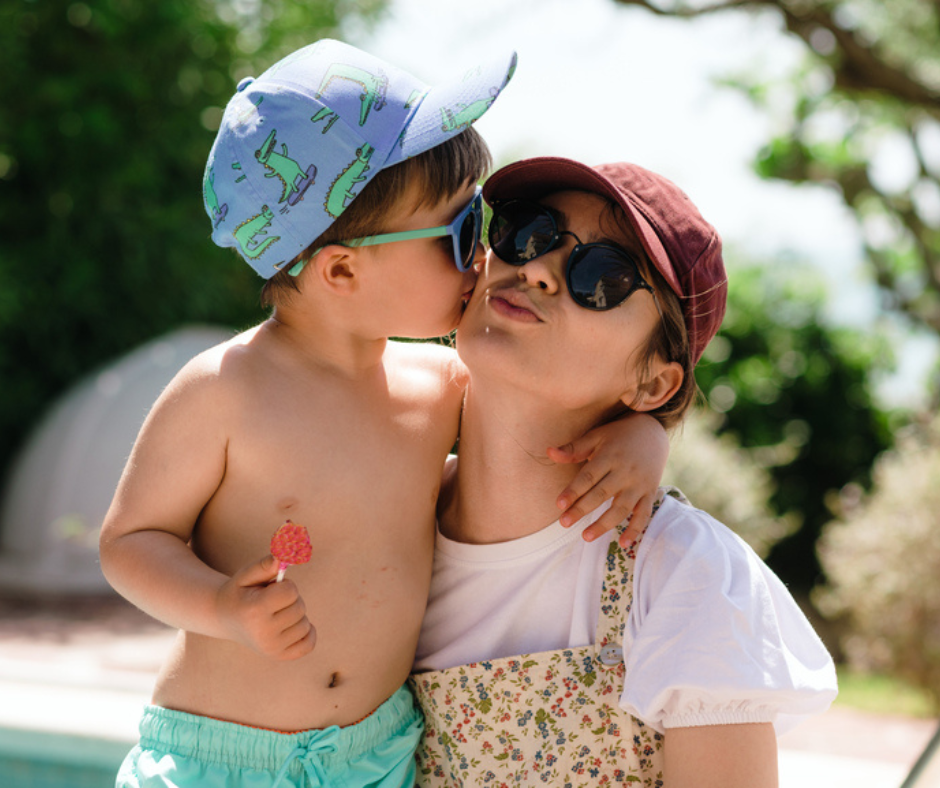
Summer Safety Tips for Babies and Toddlers
|
|
Time to read 3 min
|
|
Time to read 3 min
Babies under the age of 6 months should not use sunscreen. Therefore, shielding them from direct sunlight is important to safeguard their delicate skin. An indispensable accessory for the summer is a sun hat with a brim, which provides additional protection. It is advisable to dress babies in loose-fitting attire to avoid overheating. Newborns have a higher natural body temperature, so we want to be careful and prevent them from overheating.
A portable fan will come into great use for the summer to help keep them cool. Try and stay in areas that are shaded. Make sure to keep your newborn cool and hydrated this summer. For babies under 12 months old, we only keep them hydrated with breastmilk or formula.
For children aged 6 months and above, applying ample sunscreen 15-30 minutes before exposing them to the sun is recommended. KidsHealth suggests using a sunscreen with a minimum SPF of 30 that offers "broad-spectrum" protection and is water-resistant. Remember to reapply sunscreen at least every 2 hours to maintain its effectiveness.
When staying at a family or friend's house or renting a vacation home, it's important to prioritize childproofing to ensure the safety of children. Accidents can occur anywhere, and adults might assume someone else is supervising the child(ren) in bustling gatherings. Our childproofing essentials that are convenient to pack include outlet covers, door knob covers, and furniture bumpers to protect against sharp corners.
Make sure to carefully check the home or hotel room out when you arrive to look under furniture, cabinets, closets, and floor for anything that poses a hazard to your child. Look for anything that poses a choking, poisonous, strangulation, or injury hazard. Falls are common throughout any time of the year. Stairs and windows result in some of the most common injuries that are seen many times in the ER. Make sure to have a baby gate at the top and bottom of the stairs and a safety lock on all windows.
Make sure to have a first aid kit in your purse or diaper bag for summer safety.
Plus, if you are traveling, don’t forget:
Check out Moms on Call First Aid Kit Essentials
Give your child(ren) your full and undivided attention while they are in the bathtub and around any source of water (pool, creek, lake, inflatable pool, ocean, bucket of water, etc.). Children can drown in a few inches of water. If you are around natural bodies of water, such as a lake or ocean, always make sure they have a life jacket on – this is important, even if they already know how to swim. Life jackets can also be used in and around the pool. Drowning happens quickly and quietly, and there needs to be a designated adult watching the child(ren) around any source of water.
Make sure to learn the life-saving skills of CPR! If a child does drown or get injured, you need to be able to respond quickly! Immediate high-quality CPR doubles or triples your child’s chance of survival.
Are you ready to become confident in your ability to be able to care for your child or someone else’s child in the event of an emergency?
Take the Moms on Call Infant + Child CPR, Choking, and First Aid Online Course! We even include quick reference guides for you to print to have on hand to refer to at any moment!